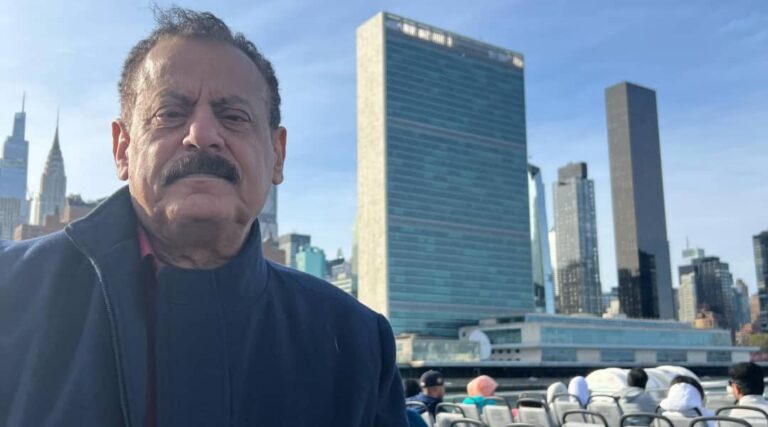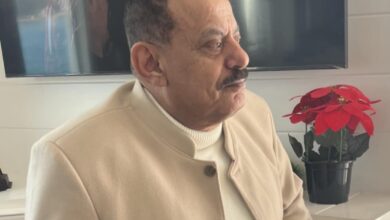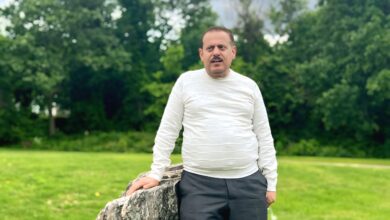Mystery and Beliefs

yemeni mp
Ahmed Saif Hashed
When I speak of certain beliefs or “visions,” I do not intend to convey my alignment with them, nor do I claim to firmly believe in their existence or accept their validity. Instead, my aim is to present them objectively, acknowledging that for those who hold these beliefs, they appear solid and certain—beyond debate or denial.
The exploration of beliefs or visions, and the act of witnessing them, takes place within a different context: that of memoir writing, where specific, concrete events are recounted.
These events can be revisited in various contexts, allowing for the examination of hypotheses, the posing of questions, the deciphering of mysteries, and the alleviation of confusion stemming from such beliefs and visions through knowledge and inquiry.
We recognize that delving into the depths of consciousness and exploring its mysteries requires scientific and cognitive tools and methodologies that may not be available here, nor are we currently focused on them.
The human psyche is shrouded in boundless mystery, with depths and secrets that science is only beginning to approach, standing at the thresholds of their existence.
In this discussion, we do not provide ready-made answers; rather, we engage with the matter from a different perspective, treating these accounts as testimonies that may hold truths. We approach them without pretense, avoiding biases and ideological flights, regardless of their direction.
In contrast, we refuse to accept them as dogmas, distancing ourselves from scientific inquiry and cognitive exploration.
What I present here are simply concrete events or testimonies included in the context of my memoir writing, without asserting anything beyond that.
* * *
According to my mother, when the world closes in on her and becomes overwhelming, or when something significant is about to happen, or a statement or action deeply wounds her feelings, she experiences a sensation that begins to coalesce in her chest.
This sensation grows like a ball, swelling until it overflows. At that point, she feels a beam of energy radiating from her head, and her body trembles as if possessed by something that overwhelms her. She cannot find peace until she expels the energy from her head and chest by banging her head against the wall, often repeating, “Ya Bahout… Ya Lahout…”
Her head-butting against the wall is typically forceful and relentless, astonishing and even shocking to those unfamiliar with her behavior, leaving first-time witnesses in a state of stunned disbelief and fear.
During one visit to the village from Aden in the 1980s, when I had begun to doubt many things, I intervened boldly. I grabbed her firmly and pulled her away from the wall, fearing for her life. I thought I might witness her head shatter against the ground or become as fragmented as glass, while she remained lost in the fervor of her actions, reaching the peak of her distress.
The wall was made of solid mountain stone, incredibly tough and unyielding. I was alarmed, fearing for my mother’s safety, unaware that stopping her from continuing her actions caused her a pain I could not have imagined.
My mother burst into intense tears, filled with burning anguish and a reproachful disappointment I had never seen in her before as she cried, “You hindered me… you hindered me… you hindered me.” She then fell ill for several days. After that, I allowed her to perform her ritual or battle with the wall as she wished, until she finished and calmed down, like a balloon that had released the pressure blocking its opening.
* * *
My mother continued to bang her head against the wall until the last month of her life, which likely approached eighty years. In her final years, whenever this behavior occurred, we began to anticipate the arrival of something ominous. We interpreted it as a feeling she could only express in that strange manner.
About a year before her death, I found myself in imminent danger. She experienced a panic attack beforehand, repeatedly striking the wall until she could only find solace after I made an urgent phone call. My call, which came after her phone had been off, was met with numerous messages indicating that many calls had been made while it was shut off. My voice calmed her and halted her frantic episode.
For her, it was akin to a seizure that subsided only when I spoke with her. She insisted, with unwavering certainty, that I was in immediate and grave danger. In a state of panic, she would cry out, “My son is in danger… my son is in danger…” And indeed, the threat was real and imminent, with only minutes separating me from potential harm.
That day, I felt our bond was deeper than mere family ties; there was a strong spiritual connection between us, an exceptional instinctual awareness from a mother regarding the dangers threatening her beloved son, whom she cherished more than herself, perhaps even more than her other children.
I witnessed countless moments of her head-butting the wall, each one inexplicable to me. She would prepare, rush towards it, and strike it three, four, ten times. To this day, I have found no scientific explanation for this behavior, which I can only regard as extraordinary. She was not one to lie or deceive, nor had she ever performed in a theater, circus, or as an acrobat.
* * *
In her dreams, my mother would say that she saw her ancestors appearing to her, revealing truths about future events, whether joyful or tragic.
I remember her telling me once that her grandmother, Janoub, had come to her in a dream to warn her of a significant event that would occur, and indeed, what she foretold came to pass within days, precisely as she had described it without ambiguity.
My mother’s relationship with her ancestral guardians was profound, and her belief in them was unwavering. She would pray to God and seek His help, never forgetting her ancestors whom she had come to trust through repeated experiences. She firmly believed they assisted her.
Whenever she wanted something from them, she would make a vow, light candles, or perhaps feed a poor person, or even sacrifice livestock if the situation warranted such an act in her eyes. This belief persisted until her death in 2017, and some might attribute it to what is known as the “Law of Attraction,” or something akin to it.
When I was on hunger strike alongside the wounded near the Cabinet Office in early 2013, my mother prayed for God to support me, to stand by me, and to accompany those who stood with me. She invoked her ancestral guardians to be by my side during perilous times, to protect me from danger, and to be present in every hardship I faced.
She would take some banknotes (one-thousand rials), wash them in water, recite the Quran over them, and dedicate them to the needy, firmly believing that her actions would safeguard me from the evils of humanity, which she believed might surpass even the malice of demons.
* * *
Out of her love for me, she would say, “I ask God to take the remaining years of my life and extend yours.” She never expressed such sentiments to any of my siblings. Both of us lived long lives—she approached eighty, while I neared sixty. Before her passing, she would listen only to me, fulfilling my requests, even when it was against her will.
As my mother neared the end of her life, she chose death over consuming even the slightest morsel of food. When I urged her to eat, she complied only with great reluctance, forcing herself to do so. It felt as if her actions were steeped in the very essence of death itself. An hour later, I would be shocked to find what she had eaten returning, as if it had been hidden somewhere in her mouth or throat, emerging unchanged despite my belief that it had settled in her stomach.
I later learned that such occurrences were omens of misfortune. I had been deeply attached to my mother, even as I approached sixty. I favored her above everyone else in my life, often prioritizing her needs over my own. I was fiercely protective of her, indifferent to the well-being of others. She was always my first choice, the one I preferred above all. If I ever became upset with her during a rare moment of intense stress, I quickly apologized, filled with regret. She made me feel that the space in her heart was a paradise unlike any other, and her forgiveness was boundless.
* * *
My mother’s behavior often reminded me of other scenes from my childhood. I would see strangers wandering from house to house, practicing a form of “spiritual healing” in exchange for simple gifts, primarily grains like millet, corn, or barley. We referred to them as “the followers of Ahmed Bin Alwan.”
I witnessed astonishing acts among them: one man would remove his eye from its socket with a dagger, leaving it hanging for a moment before returning it, while another would repeatedly stab his abdomen with a dagger, an axe, or a “jarda,” which resembled a smaller sword.
The most striking scene etched in my memory was that of a man in his forties, slightly tanned, with a prominent bald head that extended from his forehead to the nape of his neck. He would begin by striking what we called a “tabila,” preparing for what was to come, his body trembling as if possessed. Then he would stab various parts of his body with the dagger.
What left the most lasting impression was when he struck the center of his bald head with the dagger, again and again, leaving it lodged in his scalp after the final blow. With both hands away from the handle, he would tilt his head to show us the blade embedded in his gleaming baldness, proving beyond doubt what we were witnessing. You could gaze intently to confirm that what you saw was a stark reality, devoid of trickery or illusion.
Our eyes remained wide with astonishment, fixated on the spectacle, which would remain in our memories for a lifetime, without a shadow of doubt about what we had seen.
* * *
There are many mysterious beliefs I still remember today. My father, when he went out at night and felt a thorn prick him, believed that misfortune would befall him if he ignored it. He seemed to have learned this lesson through long experience, perhaps embodying the saying he often repeated: “If you are pricked, turn back.” He would act on this if it happened to him at night, and perhaps even during the day, as I later learned.
My aunt Saeeda, my father’s wife, and I would often notice when one of us felt a twinge in our abdomen or foot, especially if my brother Ali was arriving from Sana’a or if a beloved guest was coming. If one of us experienced a sudden pain in our hand, it usually meant we would receive money, something that would bring us joy, or we would shake hands with someone generous or delightful.
This intuition still happens to me occasionally today. We had a keen sense and heightened awareness, but now only remnants of that remain, far less than before.
* * *





